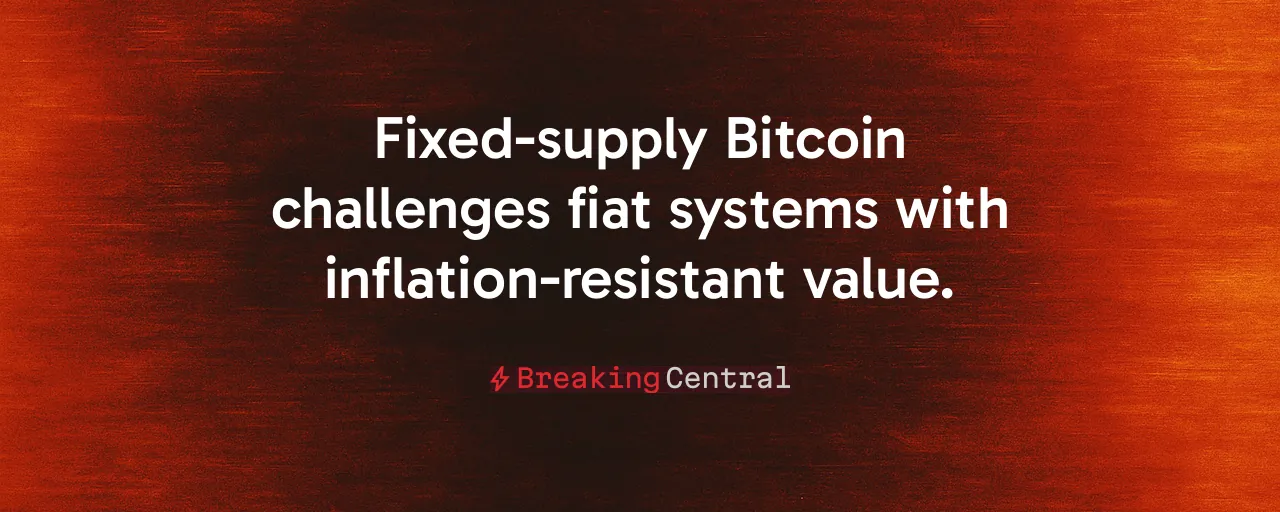A Market Roars to Life
BlackRock's iShares Bitcoin Trust, known as IBIT, has taken the financial world by storm, amassing 696,874 Bitcoin, worth nearly $74 billion, in under two years. This accumulation signals a broader shift. Investors, from everyday savers to pension funds, are pouring money into this exchange-traded fund, making it the fastest-growing ETF in history. This highlights a growing appetite for Bitcoin, with its deeper implications for individual freedom and economic stability.
The surge is driven by clear factors. People are seeking ways to shield their wealth from inflation and unpredictable government spending. Bitcoin, with its fixed supply of 21 million coins, offers a hedge that resonates with those wary of fiat currency's erosion. Unlike traditional assets, it operates outside central bank control, appealing to those who value self-reliance.
The rapid inflows into IBIT, including record-breaking single-day subscriptions, show a deliberate choice by investors, indicating a move beyond mere hype or speculation. Pension systems, like Wisconsin's SWIB, and even BlackRock's own funds are allocating to IBIT, demonstrating its legitimacy. The question now is how this momentum shapes the future of finance.
Freedom Through Fixed Supply
Bitcoin's appeal lies in its design: a hard cap of 21 million coins ensures scarcity, much like gold. This aligns with principles of sound money, where value remains undiluted by endless printing. Over the past decade, Bitcoin's compound annual growth rate has outpaced stocks and commodities, offering a compelling case for its role as a store of value. For many, it's a bulwark against fiscal policies that erode purchasing power.
IBIT's success reflects this demand. Its $70 billion in assets within 341 trading days shows investors trust Bitcoin to preserve wealth. Unlike futures-based ETFs, IBIT holds actual Bitcoin, giving shareholders direct exposure without the complexities of self-custody. This structure democratizes access, letting retail investors join institutions in a regulated framework.
Historical parallels exist. Two decades ago, the SPDR Gold Shares ETF transformed gold into a financial asset, broadening its reach. Bitcoin is following a similar path. Its decentralized nature resists centralized control, empowering individuals to opt out of traditional systems.
Navigating Regulatory Waters
Despite its rise, Bitcoin faces hurdles. Overregulation threatens to stifle innovation, potentially pushing capital to less restrictive jurisdictions. Policymakers need to balance investor protection with the freedom to innovate. Treating Bitcoin as a commodity, like gold, under a light-touch framework would encourage growth while ensuring oversight.
The SEC's approval of IBIT in January 2024, after years of rejections, marked a turning point. A 2023 court ruling forced the agency to reconsider its stance, highlighting inconsistencies in prior denials. This shift shows markets can drive change. However, the risk of future restrictions remains present. Proposals for heavy taxation or ESG-driven limits could deter investment and undermine Bitcoin's potential.
A practical solution lies in fostering domestic Bitcoin mining. Using excess or stranded energy, like natural gas flares, could power mining while addressing environmental concerns. This approach supports energy innovation and keeps economic activity onshore, aligning with national interests.
Empowering Individual Choice
Bitcoin's rise through IBIT underscores a core value: individual choice. Self-directed retirement accounts can have the flexibility to hold Bitcoin, allowing people to diversify beyond traditional assets. Studies show a 1-5% Bitcoin allocation can enhance portfolio returns, though with higher volatility. Investors deserve the right to make that call.
At the same time, Bitcoin's growth prompts caution. Its 24/7 trading contrasts with ETFs, which trade only during market hours, creating potential price gaps. Custody solutions, while secure, shift coins to institutional vaults and raise questions about decentralization. These trade-offs require clear communication to ensure investors understand the risks and rewards.
A Vision for Financial Freedom
BlackRock's Bitcoin ETF represents a testament to market-driven demand for alternatives to centralized control, extending beyond a mere financial product. Its rapid growth reflects a desire for assets that preserve value and empower individuals. Policymakers should heed this signal, prioritizing innovation over restrictive mandates.
The path forward lies in balancing oversight with opportunity. Light regulation, domestic mining, and broad access to Bitcoin through vehicles like IBIT can strengthen financial resilience. Rejecting central-bank digital currencies, which threaten privacy, also protects individual autonomy.
As Bitcoin cements its place in portfolios, it challenges old assumptions about money and power. The question becomes how to ensure its potential benefits everyone, not just the few, as its place is cemented. That's a future worth building.
